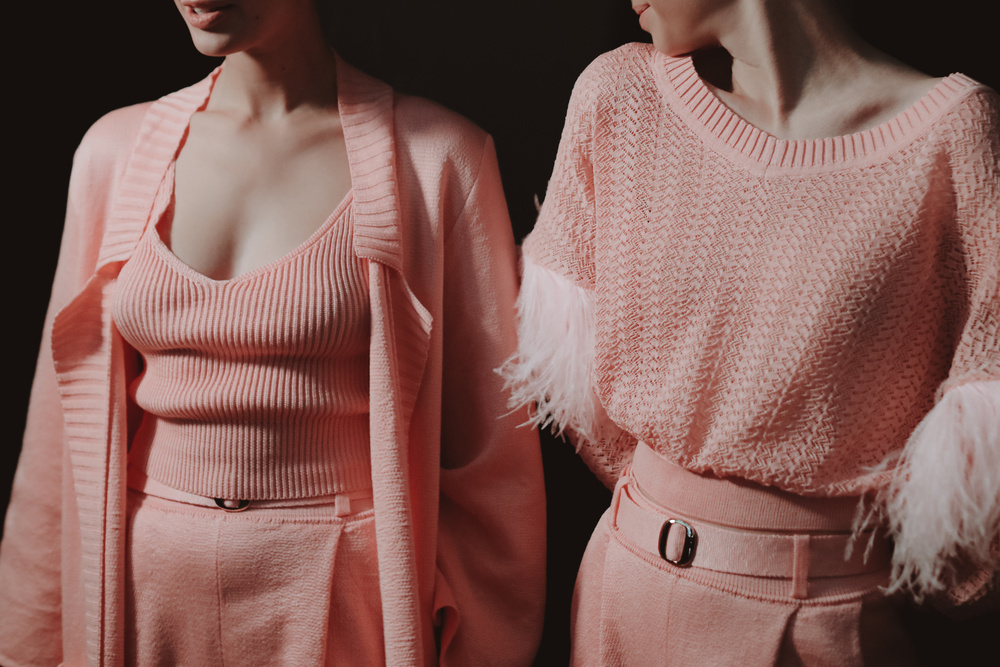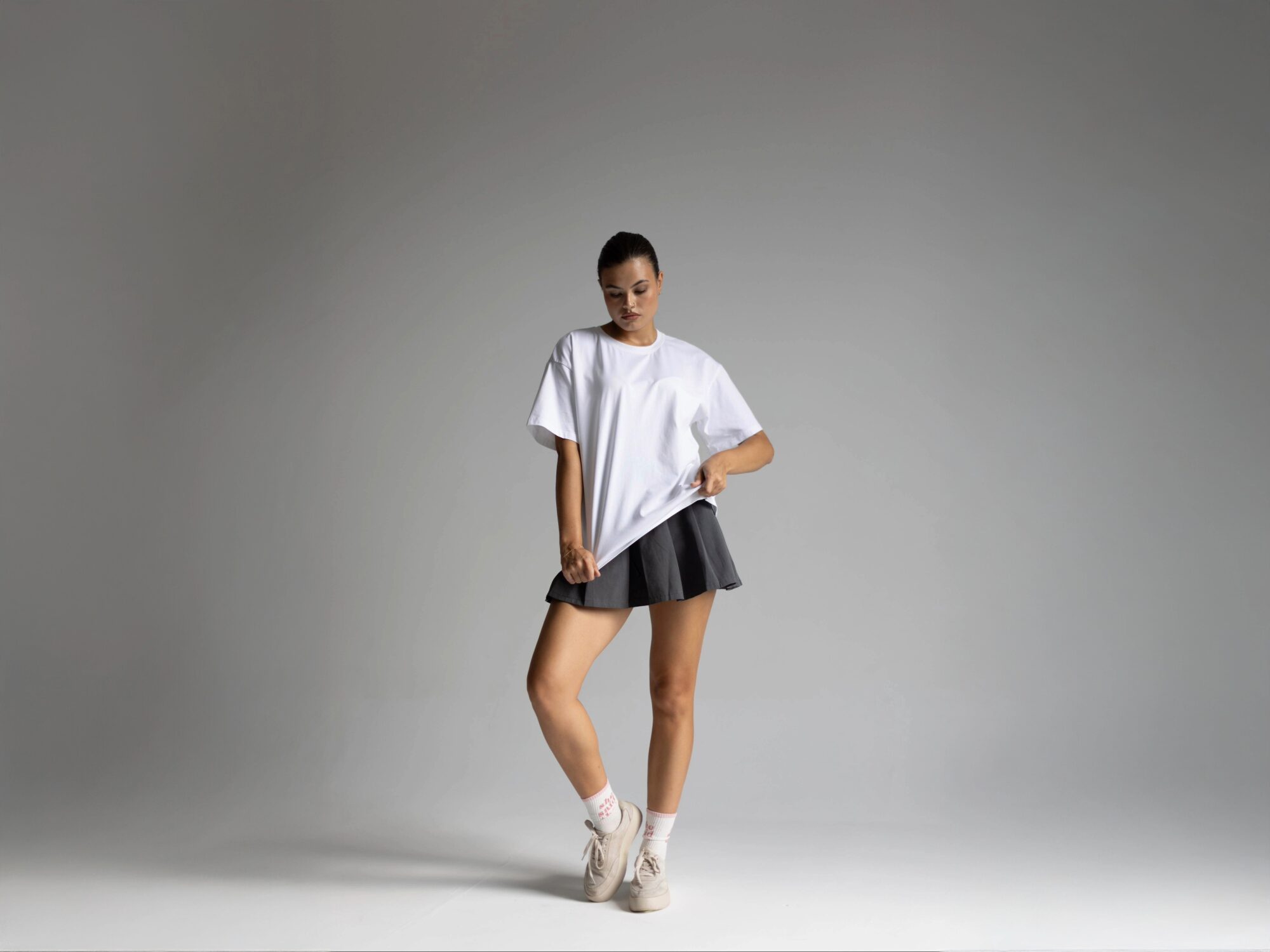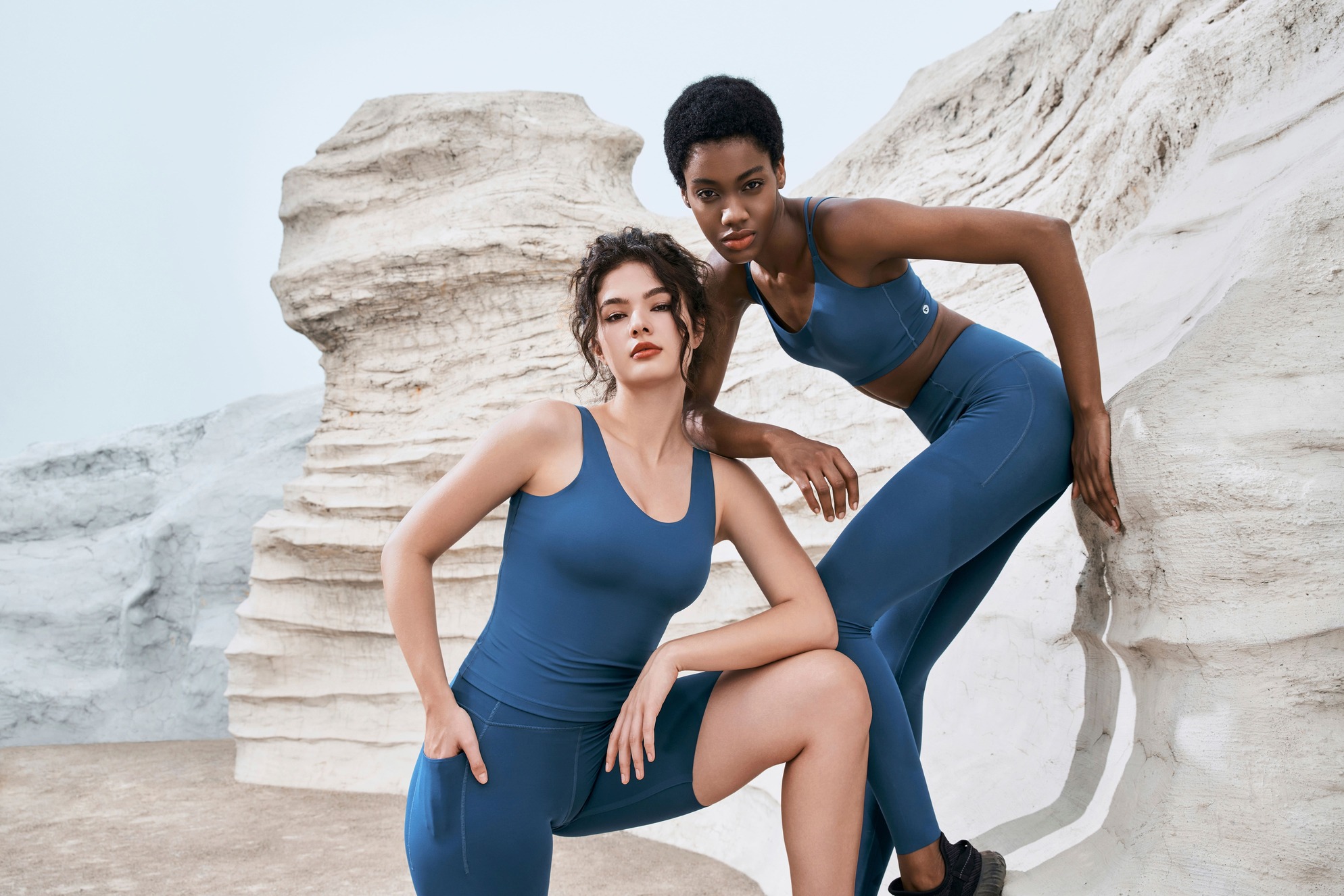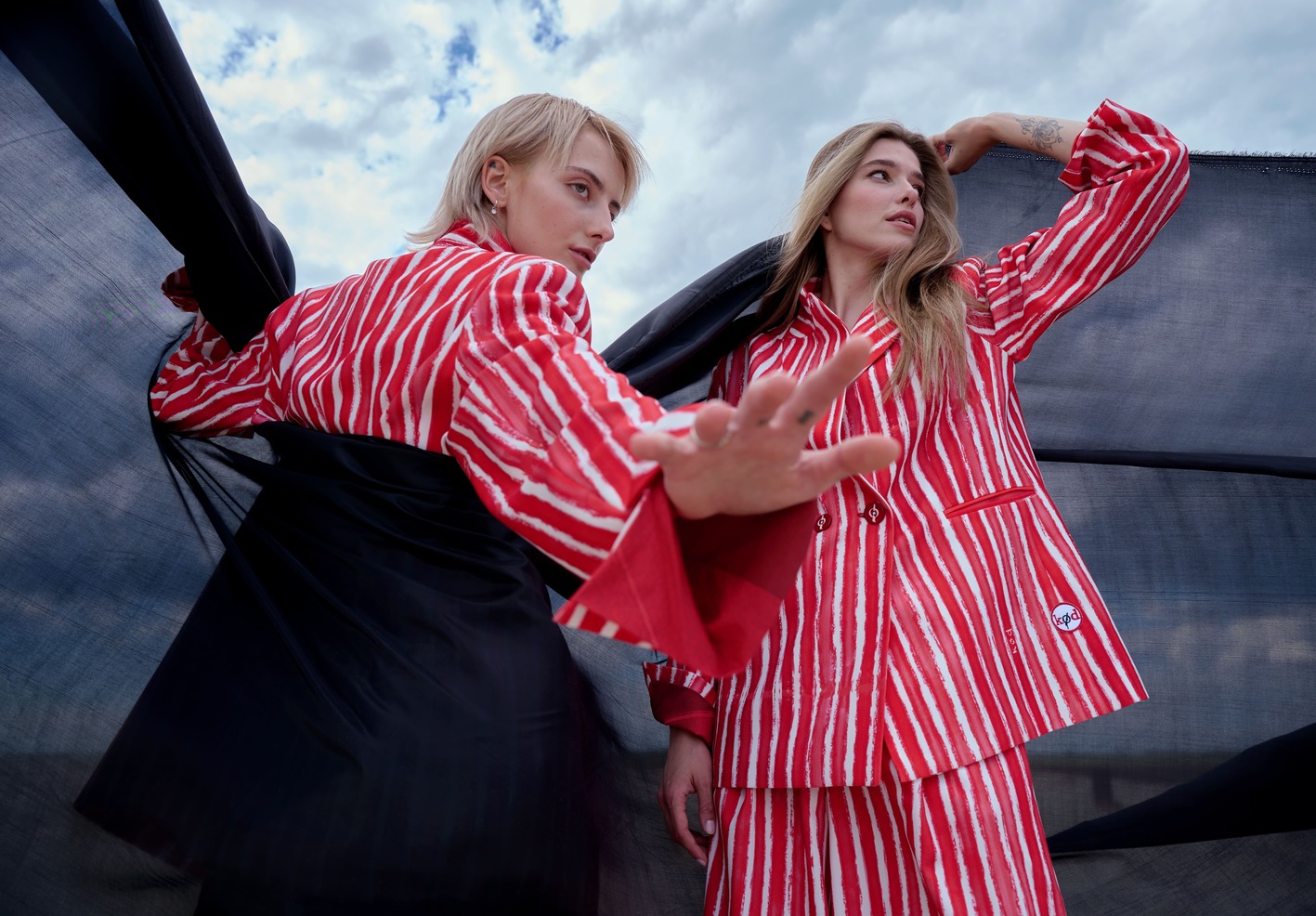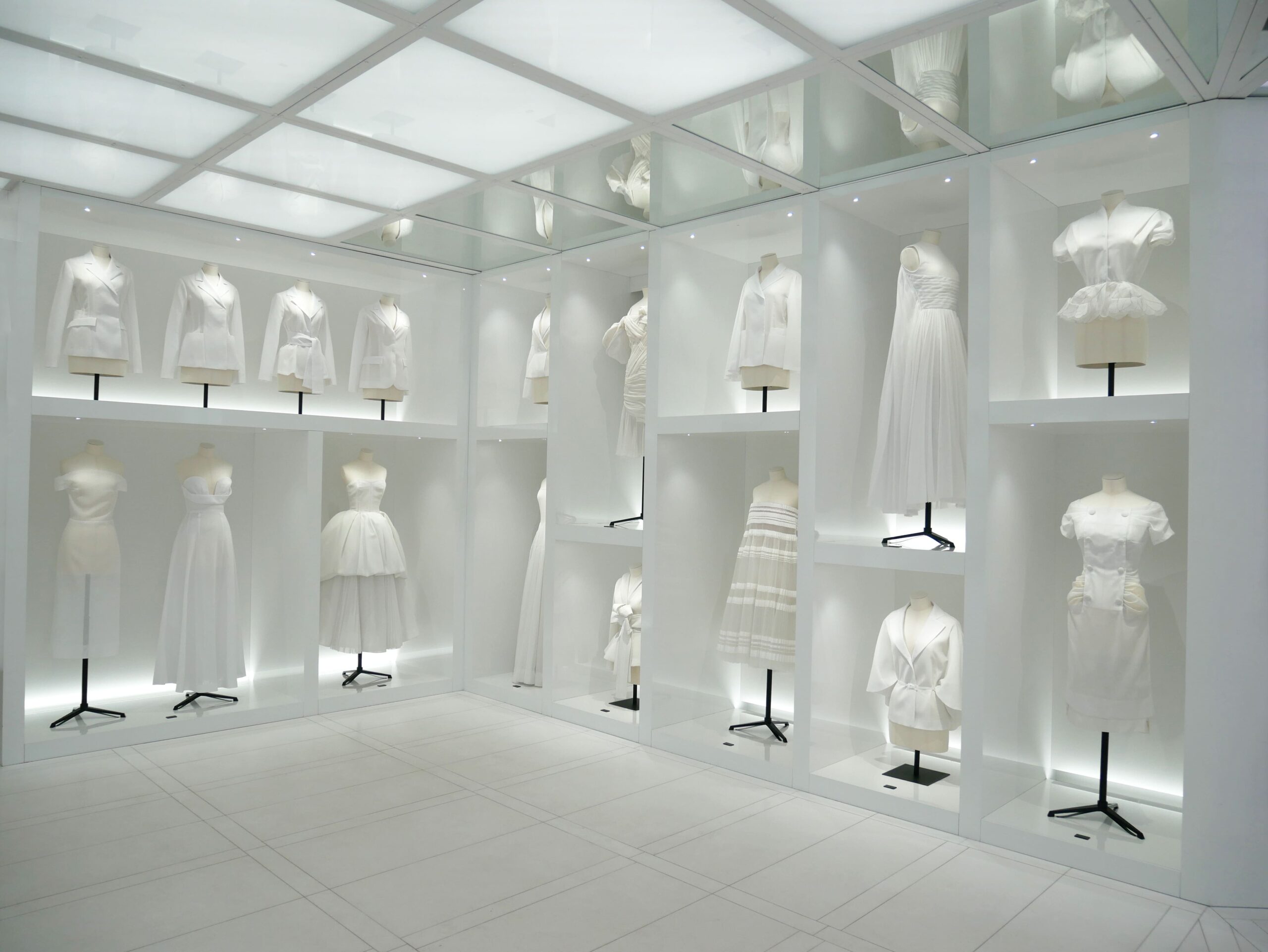November 2024
The 5 Most Used E-Commerce Platforms for Fashion Stores
Ester Bazzanella

When starting an online clothing store, deciding which e-commerce platform to use can be overwhelming. There are countless options available at different price points and with varying amounts of features.
When researching online, remember that the decision of the “best” e-commerce platform to use is a very subjective one. What a multinational brand looks for in an e-commerce platform is very different from what a small local fashion brand looks for.
With that in mind, this guide will help you decide which e-commerce platform to use for your online fashion store during your research. We’ll cover what to look for in an e-commerce platform, how to choose a platform and the 5 most used e-commerce platforms for fashion brands.
User-Friendly Interface
This is essential not just for your shoppers, but for you and your team as well. Shoppers expect an intuitive experience while browsing garments and collections, just as much as managers need an easy-to-use backend.
Consider the shopper experience first. Is it easy for shoppers to find what they’re looking for? Can they easily filter products? Is checkout quick and easy?
The shopper experience is the first priority, but don’t forget to consider a platform’s features and usability for managers. Is it easy to manage inventory, process orders and payments? Can stores be customized to match your brand?
Mobile Responsiveness
More than half of all global internet traffic comes from mobile devices. This is why your store’s mobile experience has such a profound impact on its overall performance. Because if roughly half of all visitors to your site have a bad experience, you can be sure you’re leaving money on the table.
Nowadays, having a mobile site is not something nice to have – it’s something users expect. Look for an e-commerce platform that offers full mobile responsiveness. Also consider the tools and plugins you intend to use in your store and what they look like for mobile users.
Customization Options
Branding is important in fashion e-commerce. It’s what separates you from your competitors and connects you with your audience. After investing in creating your brand, your e-commerce store should reflect your brand identity.
Look for what kind of customization options e-commerce platforms offer and if they’ll be enough to create the store you envision. Also take a look at the store themes a platform offers and see if any of them fit your brand.
Payment and Checkout
When shoppers can pay how they want, they’re less likely to abandon their cart. So the more payment options users have, the better.
Your e-commerce platform should handle payments and provide a smooth checkout process. Third-party payment methods like PayPal and ApplePay are also necessary to offer your shoppers quick checkout
You may also want to consider the markets you operate in and any plans for expansion. If you’re thinking of entering new markets, look for an e-commerce platform that supports local payment methods.
Security Features
Since your fashion e-commerce store will be processing customer information and payment data, security cannot be overlooked. Whatever platform you use should have the necessary security measures in place to keep you and your customers’ data safe.
SEO and Marketing Tools
Built-in SEO and marketing tools may not be important if you already have strong digital marketing in place. But if you don’t, they can greatly help drive traffic to your store.
A platform with strong SEO capabilities can help your products rank higher in search results. Integrated SEO tools can also offer insight into how you can provide a better user experience for your shoppers.
How to choose the best platform for your store
Define Your Needs
There is no right platform in fashion e-commerce, only the right platform for your store. It’s a very subjective decision that can only be made once you know what your store needs.
A good place to start when defining your needs is the size of your store and the products you want to sell. Do you have limited inventory or do you need advanced inventory management features? Do you need a drag-and-drop store builder or do you have developers that can build a customized store?
Considering future plans for growth is also important. Scaling a store is easier on some platforms than others. Defining your needs before even starting your research will help you be more assertive and narrow down your options to find the best e-commerce platform to use.
Look for Fashion Features
The right e-commerce platform should offer the right features or plugins to meet the challenges of fashion e-commerce. For example, sizing uncertainty tends to be the biggest barrier to purchase in fashion e-commerce but it can be resolved with size charts, virtual fitting rooms, and size recommendation tools.
Other features, like product zoom and 360-degree product view, are also must-haves for your shoppers to get a closer look at fabrics, stitching, and details – things that are important for users buying clothing. Consider the shopping experience you want to offer and what features you’ll need to address the typical challenges ofbuying clothing online.
Evaluate Cost and Pricing Plans
Cost is obviously a huge factor in deciding which e-commerce platform to use. When evaluating platform pricing, make sure to keep in mind any additional costs beyond monthly subscription costs. For example, you may need to hire a developer depending on the platform you use or the level of customization you want for your store.
If you want to implement any paid plugins or additional tools in your store, check the price of those services as well. Analyze all of these costs, both upfront and recurring, and consider any plans for future growth. Depending on future plans for expansion, it may make more sense to invest more money upfront to facilitate future growth and scaling.
The most used e-commerce platforms for fashion brands
Now that you have a better idea of what to look for in an e-commerce platform, let’s get into our list of the top 5 platforms for fashion brands.
Best WordPress platform: WooCommerce
WooCommerce is an open-source WordPress plugin known for its flexibility and scalability. It’s great for fashion brands that need a DIY solution that they can personalize to best showcase their brand.
While unlimited customization means you can make sure your store perfectly matches your brand’s style, it also means you’ll probably need a developer to help get your store set up.
Access to WordPress’ SEO toolkit also makes WooCommerce ideal if you want to leverage content marketing.
Pros:
- Unlimited customization and scalability to match your brand’s style
- Over 55,000 plugins for added functionality, from lookbooks to sizing guides
- Complete SEO control and content management via WordPress to boost your brand’s visibility
- Supports multiple currencies and languages for global reach
- Free to use with strong community support to help your brand grow
Cons:
- Requires technical expertise for setup and management
- Additional costs for hosting, plugins, and maintenance
- Plugins can affect site performance, which may impact the shopping experience
Best platform for small- to medium-sized stores: Shopify
Shopify is the go-to platform for many fashion brands. In fact, there are more than half a million clothing stores on the platform! And for good reason. Shopify has everything you need to get your online store up and running quickly.
Shopify also has everything you need to run your business, with plenty of apps to improve the experience of shopping for clothing online, robust marketing tools, and secure payment gateways.
Our Size & Fit solution can be easily integrated into Shopify stores as an app. Size & Fit gives your shoppers access to quick and convenient size recommendations to improve their shopping experience.
With plenty of well-designed themes, Shopify is ideal for stores that want to scale without needing much technical knowledge.
Pros:
- Effortless setup with a sleek, user-friendly interface
- Access to over 8,000 apps to enhance your store’s functionality
- Secure hosting with SSL included
- Professionally designed themes perfect for fashion brands
- Strong customer support and an active community
Cons:
- Limited customization options for those wanting a unique look
- Transaction fees if you don’t use Shopify Payments
- Basic content management tools
Best platform for large-scale fashion brands: Magento
Magento, now known as Adobe Commerce, is a powerful platform for fashion brands that need total control and customization. Setting up stores on Magento generally requires extensive technical knowledge and larger budgets, which makes it a better option for larger fashion brands.
The high level of customization allows fashion brands to tailor their online shopping experience. They can display their garments and collections in a way that is unique to their brand.
Pros:
- Unmatched customization and scalability for fashion brands
- Advanced SEO features and multi-language support to reach global audiences
- Handles complex product types like customizable outfits and collections
- Thousands of integrations and a strong community to support your brand’s growth
Cons:
- Requires significant technical expertise and developer support
- Higher costs for development, hosting, and maintenance
- Needs powerful hosting solutions for seamless performance
Best platform for boutique fashion brands: Squarespace
Squarespace is all about style and simplicity—perfect for fashion brands that want their online store to look as good as their latest collection. With stunning templates and an easy-to-use interface, Squarespace makes it simple to create a beautiful, visually engaging shopping experience.
Squarespace is best for smaller fashion brands who don’t need a lot of e-commerce features. For example, not being able to import products or having advanced product customization options may be limiting factors for larger brands.
Pros:
- Gorgeous, customizable templates that make your brand stand out
- User-friendly drag-and-drop interface
- Built-in SEO tools and blogging features to showcase your fashion expertise
- Secure hosting with SSL included
- 24/7 customer support to keep things running smoothly
Cons:
- Limited e-commerce features and customization for more complex needs
- Fewer payment gateways and integrations
- Transaction fees unless you use Squarespace Payments
Best platform for fashion brands that are ready to scale: BigCommerce
BigCommerce is built for growth. Fashion brands can manage multiple storefronts from a single dashboard, making it easy to expand into new regions and segments, as well as launch new brands.
With powerful multi-channel selling capabilities and scalable infrastructure, BigCommerce can handle growing demand so you won’t need to switch platforms. Although it’s a pricier option on this list, no hosting is required. The platform also delivers enterprise performance and security while managing complexity and volume.
Pros:
- 0% transaction fees and support for multiple currencies to reach global customers
- Scalable infrastructure that can grow with your fashion brand
- Strong multi-channel selling features to maximize your brand’s visibility
- Comprehensive SEO tools to boost your online presence
- 24/7 customer support to keep your store running smoothly
Cons:
- Higher costs compared to other platforms
- Limited theme options, with basic free themes that may not stand out
- Advanced features can be pricey
Other Commonly Used E-Commerce Platforms
Salesforce offers different cloud-based services ranging from CRM to e-commerce solutions. You can set up an e-commerce website, drive sales, and provide a great customer experience all within Salesforce.
Prestashop is an open-source e-commerce platform that allows for a lot of customization. You can download the classic version of their software and develop an e-commerce store for free. They also offer monthly, and custom pricing for personalized projects.
Vtex is an enterprise-grade platform to build your digital storefront, streamline your operations, and easily scale your store with key customer insights. It offers integrated tools to manage orders and sell across channels.
Additional E-Commerce Platforms
SAP Ecommerce Cloud provides connected, insightful, and adaptive commerce experiences to help you drive profits.
Farfetch Platform Solutions is targeted at luxury brands that want to increase their global presence.
Centra unifies all of your fashion brand’s sales channels under one platform.
Oracle Commerce seamlessly connects customer, sales, and back-office data
InterShop is a cloud-based e-commerce platform that enables you to deliver personal experiences.
CommerceTools is a composable commerce platform with flexible and scalable e-commerce tools.
Providing the best shopping experience
All of the e-commerce platforms on our list are great options. As we’ve mentioned, there’s no best platform to use as it’s a very subjective decision. You need to take the time to properly define your brand’s needs and the experience you want to offer your shoppers.
Ultimately, the shopping experience you provide is what’s most important. Make sure the platform you choose aligns with the experience you want to offer while also making it easy to manage your store’s demands.
Once you’ve chosen an e-commerce platform and started setting up your online store, keep in mind the shopping experience from the user’s perspective. If you’d like to learn more, check out our article about providing the best possible user experience.


